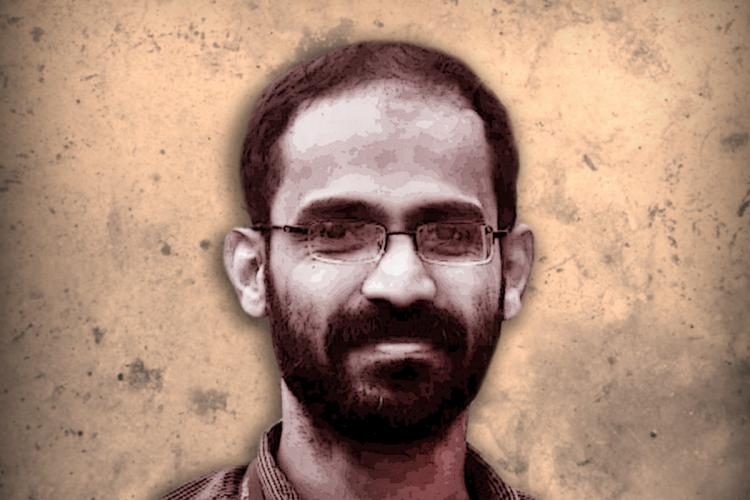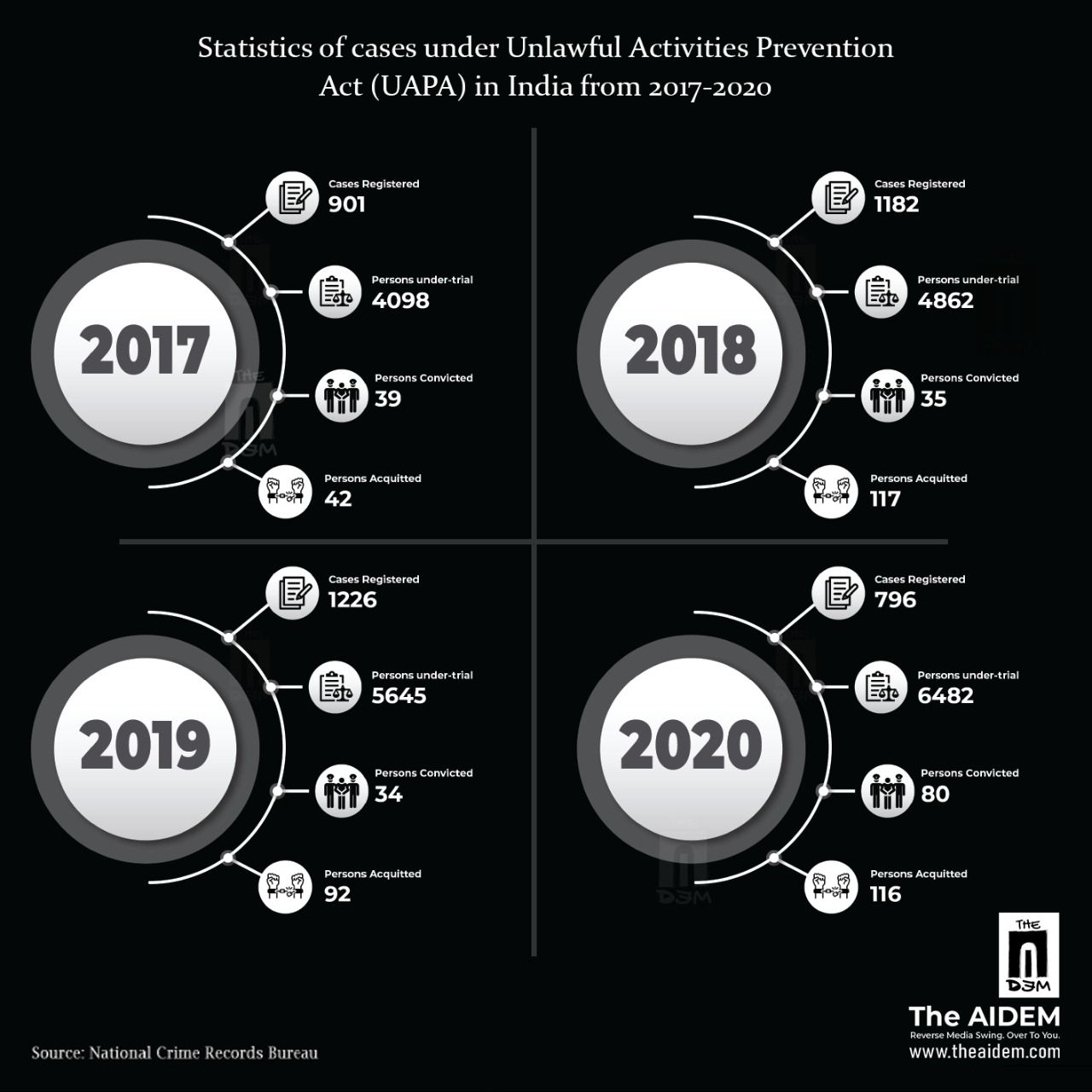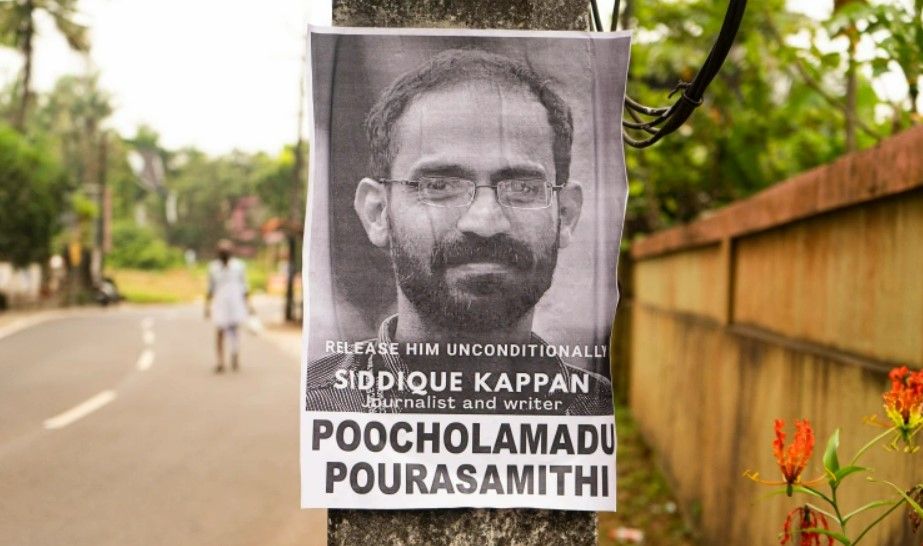Relief is elusive for Siddique Kappan as attempts are under way to ‘fix’ an approver to fix him
On September 9, 2022 the Supreme Court granted bail to Siddique Kappan, a Malayali journalist who has been in jail for more than two years in a case filed against him under the Unlawful Activities (Prevention) Act, or UAPA, in Uttar Pradesh. The bail has indeed brought a great relief to the journalist , his family and friends . However, if the signals emanating from the Uttar Pradesh government is anything to go by, there are some concerted moves to trap the journalist once again and push him back into prison .
On June 10, 2020, the Uttar Pradesh Police arrested Siddique Kapan while he was traveling to Hathras to report a case of rape and murder.

A clear indication of these moves had come up during the hearing on the bail petition itself, when the prosecution informed the Supreme Court that efforts are still progressing to find an approver against Siddique Kappan. Advocate Mahesh Jethmalani, who appeared for the prosecution, told the Supreme Court that this would be possible and a fresh trial would begin within two months. Beyond this blatant statement, the information The AIDEM gathered from administrative and legal sources in the Uttar Pradesh government points to continuing sly attempts to fix an ‘approver’ . The identity of this person is not yet clear.
A significant number of observers point out that the very fact that the prosecution is looking for an approver is proof of the failure of the nearly two-year investigation against Kappan. It goes to prove that the Uttar Pradesh police couldn’t find any solid evidence against Kappan. Supreme Court Chief Justice U.U. Lalit also had pointed out this failure of the police while hearing the bail plea.
Commenting on this case, Thulasi K. Raj, a practising Supreme Court lawyer, said: “No court has convicted Kappan. It is doubtful how much evidence has been found in the investigation. That is why when the Chief Justice asked how far the investigation had progressed while considering the bail plea, the prosecution said they are still trying for an approver. Many questions have been raised against the police investigation. It is clear that despite investigating the case for almost two years, no evidence has been collected against Kappan. The charges against Kappan are hard to believe. The charge-sheet alleges that Kappan wrote in such a way that portrayed Muslims as victims and provoked them to violently protest against the Citizenship Amendment Act. It is highly doubtful how true these allegations are.”

Adv. Thulasi K Raj
Section 306 of the Code of Criminal Procedure allows the prosecution to produce an approver in cases. The approver must be a direct or an indirect participant in the crime or should have knowledge of the crime. The information provided by him should also help in the investigation of the case. Section 306 provides that at any stage of the inquiry or the trial, the magistrate may pardon the person who shares vital information and willfully turns approver. Only the court of a First-Class Judicial Magistrate has the power to admit a person as approver. The approver shall be kept in custody until the end of the trial, unless he is already on bail.
Despite the submission of charge-sheet that runs into over 5000 pages, the trial has not yet started. Siddique Kappan approached the Supreme Court after bail was denied earlier by the Mathura Trial Court and the Allahabad High Court.
NCRB data
According to the National Crime Records Bureau (NCRB) , 7,714 cases had been registered in the country in the last eight years under the UAPA, which came into force in 1967. It was amended in 2019. In the same year, 1226 cases were registered under the Act, the highest number in any year. The NCRB report says that 814 cases were registered in 2021. The highest number of cases under the UAPA is in Jammu and Kashmir. The number was 289 last year: the figure for Kerala is 18. The NCRB data shows that, even though many cases were registered, only 523 of them reached the trial stage. If one includes the 2,384 pending cases of the previous year, a total of 2,907 case had reached the trial stage in 2021. Among them, the trial was completed only in 68 cases; of them 27 had been initiated in the previous years. As many as 39 cases had been disposed without trial. The court acquitted the accused in 39 cases. As of end-2021, 2,800 UAPA cases are still pending in the courts. The conviction rate in UAPA cases is 39.7 per cent and the pendency rate is 96.7 percent. That means, a large number of accused persons remain in detention without trial or as undertrials.

Says Thulasi K. Raj: “Trials getting delayed is a problem. The trial in Kappan’s case has not even started. That is one common problem with our criminal justice system, especially when it comes to cases filed under laws like the UAPA. There is no problem for the police or special investigation agencies even if the investigation or the trial get delayed. It’s a fact that even the courts have not been able to put an end to the problem.”
The figures show that more number of cases have been filed under the UAPA after the Narendra Modi government assumed office. The number of UAPA cases filed in the States are also increasing. Journalists, social activists and people from the Muslim community are the most haunted sections under the draconian law.

Endless prolongation of the cases and the trials violates the fundamental rights of those accused and detained. Siddique Kappan has been granted bail in the UAPA case, but he can be released only if he is granted bail in the money laundering case filed against him under the Prevention of Money Laundering Act by the Enforcement Directorate, which comes under the Union Ministry of Finance







